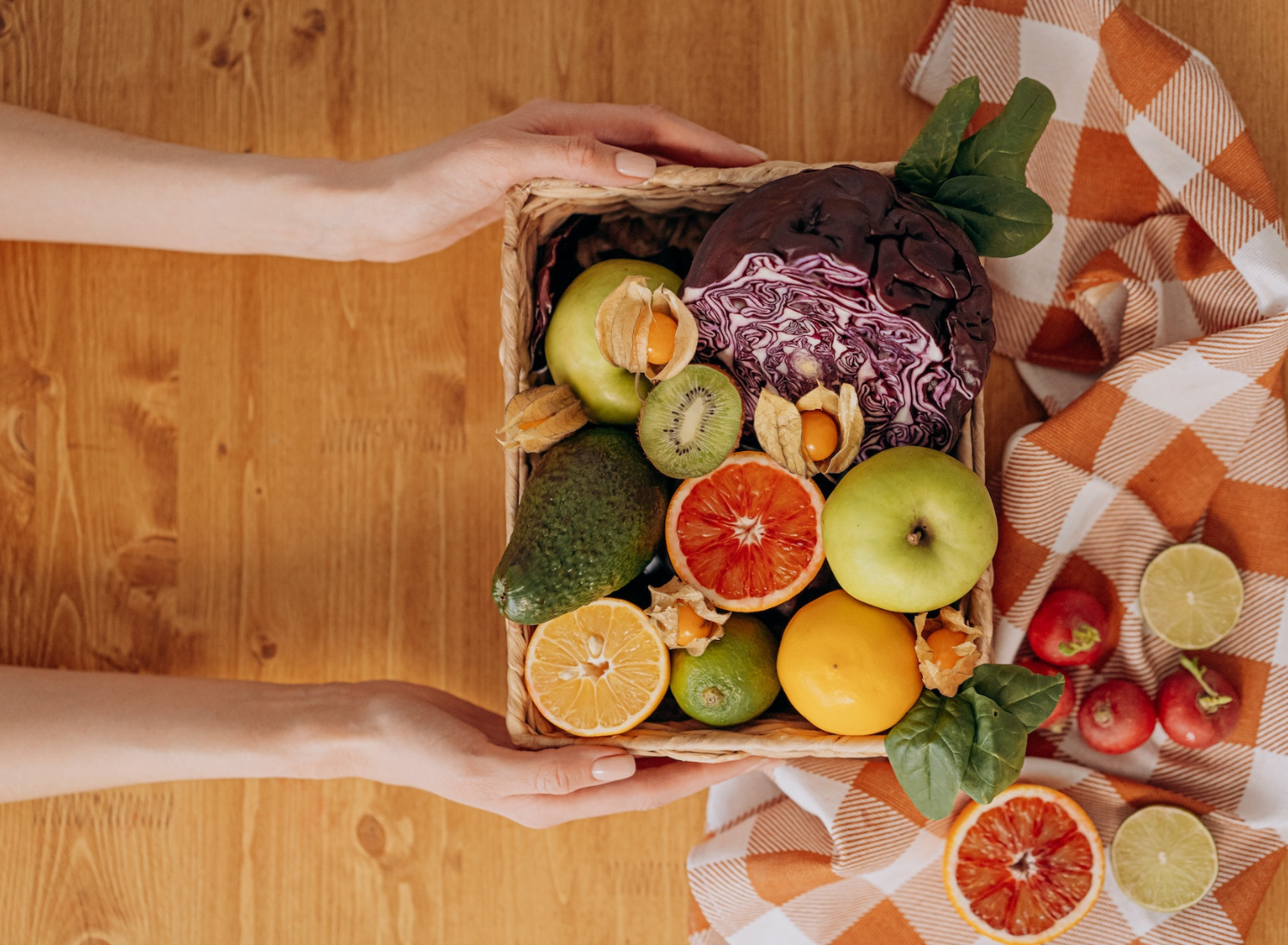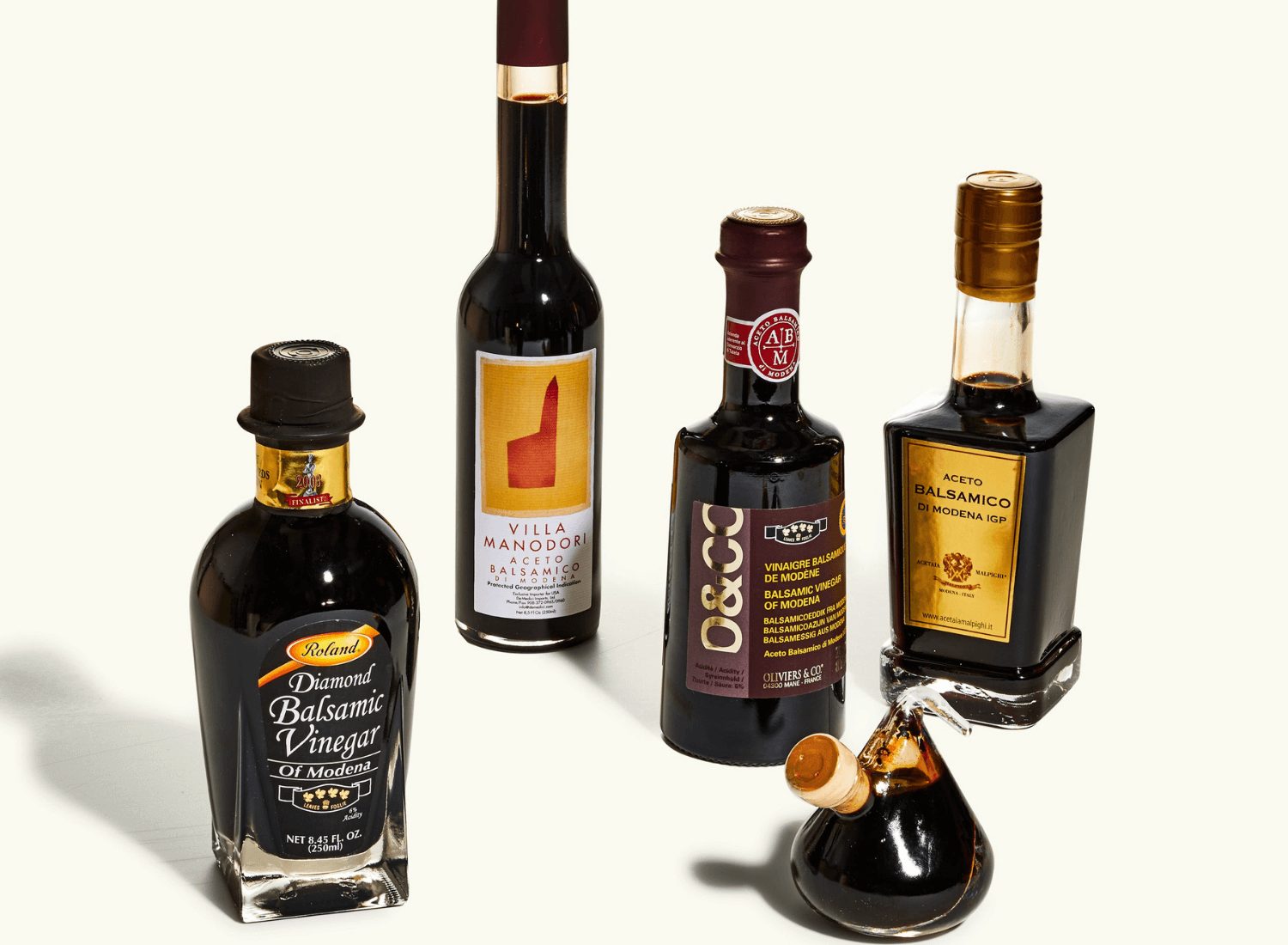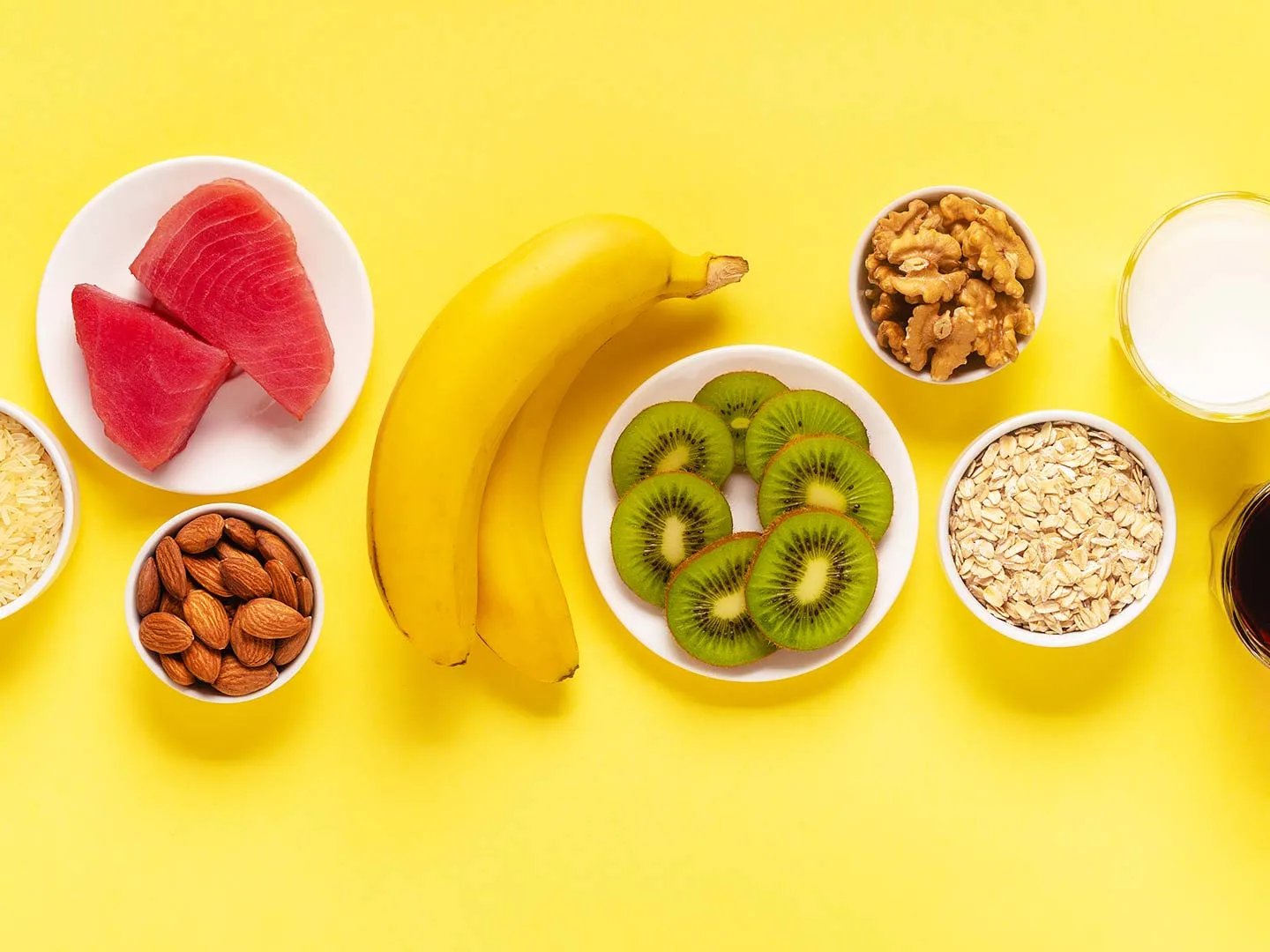Everybody is becoming more and more aware of the need to eat healthfully. The importance of a balanced diet for living a healthy lifestyle cannot be overstated. You may lead a healthy lifestyle by eating a balanced diet and making sure you get all the essential nutrients your body needs. A balanced diet is the foundation of healthy eating. Eating a nutritious diet has several advantages, like making you feel great, giving you more energy, improving your health, and improving your mood. To maximise the number of nutrients you consume, it makes sense to control your calorie consumption. Simply eating meals that are high in a range of nutrients is the easiest way to do this. Here are the top 20 foods on Earth in terms of nutrient content.
84 Healthiest Food on Earth
1. Spinach
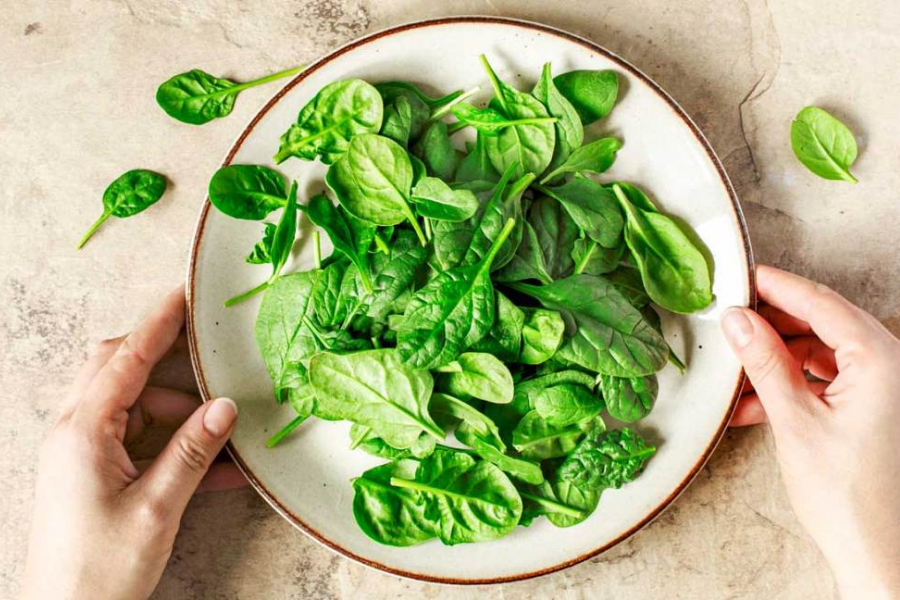
Persia is where the luxuriant green vegetable known as spinach originated. Spinach is near the top of most lists of super foods because of the many vitamins and minerals it contains, which give it the ability to prevent diseases and provide a number of other nutritional benefits. Spinach contains large amounts of magnesium, iron, manganese, and vitamins A, C, and K. Among other health benefits, consuming this leafy green vegetable may lower blood pressure, reduce oxidative stress, and enhance eye health.
2. Kale
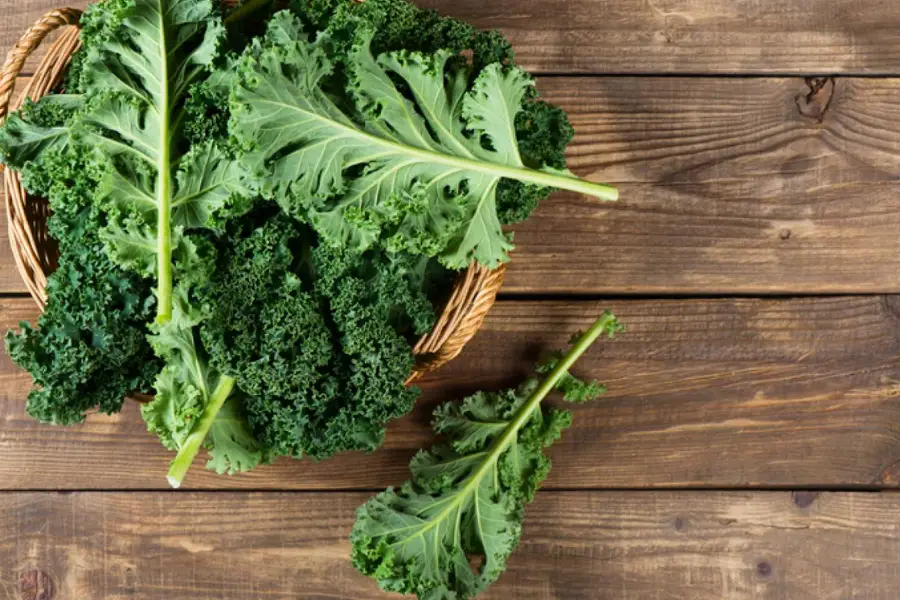
Kale is a cruciferous vegetable, belonging to the same family as cabbage, cauliflower, broccoli, and collard greens. Kale is one of the foods with the highest nutritional density in the world, packing a powerful nutritious punch into a typical meal. Kale has a variety of minerals, including fibre, antioxidants, calcium, vitamins C and K, iron, and many others that can help prevent a number of ailments. It has been proven that kale lowers cholesterol through increasing excretion and preventing the bloodstream’s reabsorption of cholesterol from the digestive system.
3. Garlic
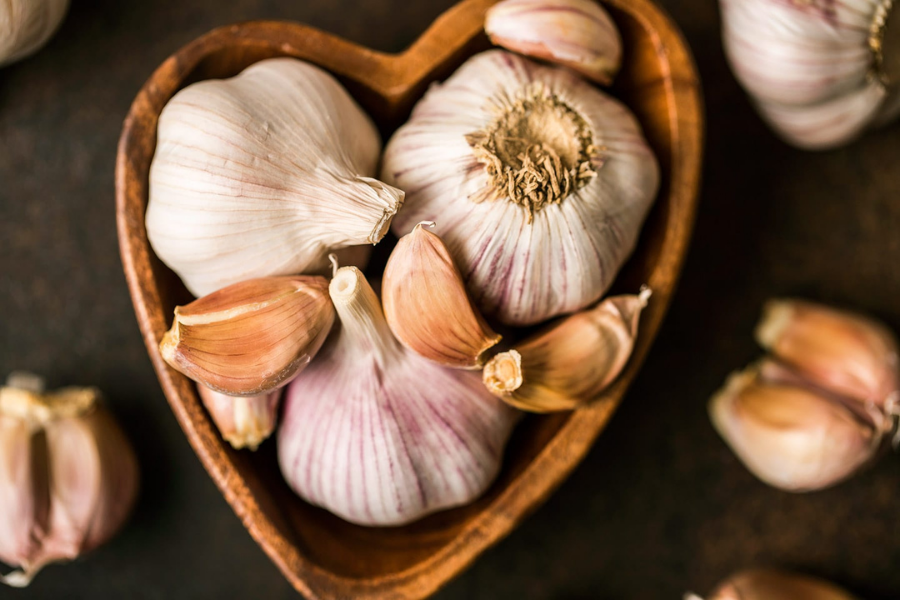
In addition to being a valuable plant, fresh garlic has a strong flavour and is a pleasant, fragrant spice. Garlic has a substance called allicin that prevents LDL from oxidising (Bad Cholesterol). This reduces cholesterol levels and strengthens the heart. Garlic has anti-inflammatory properties and aids in simpler blood circulation. Due to its ability to lower blood pressure and cholesterol, garlic naturally reduces your chance of developing heart disease. The potent immune system booster garlic lessens the severity and duration of colds and the flu.
4. Chia seeds
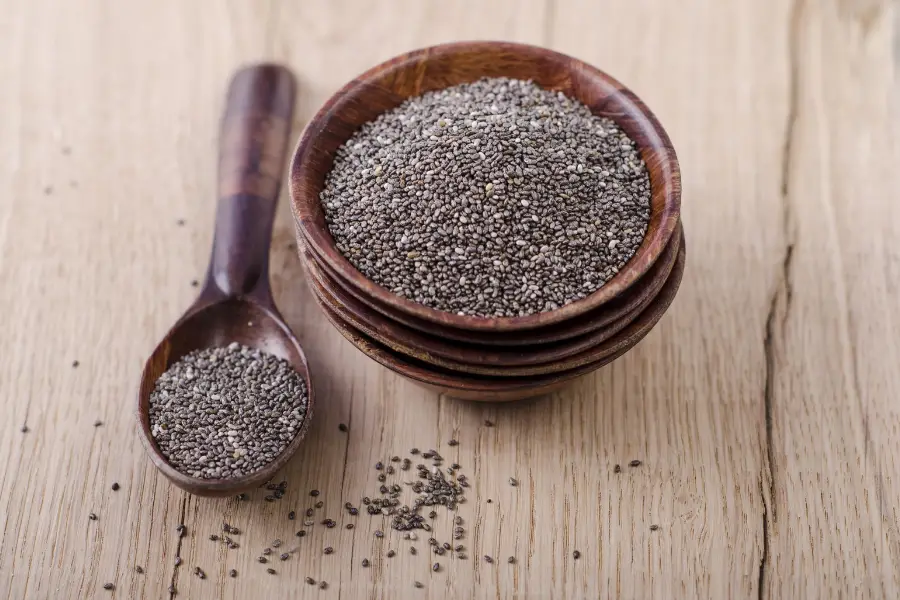
Chia seeds are often not organic and raw. They resemble flax seed in that they are rich in omega-3 fatty acids and antioxidants. The nutrients in chia seeds, when included in a balanced, plant-rich diet, may delay the onset of a number of chronic diseases. Thanks to the fibres in chia seeds that can improve the digestive system, chia seeds can be helpful for those managing a range of illnesses and health conditions, including type 2 diabetes, high blood pressure, and depression.
5. Pistachios
Pistachio nuts are extremely healthful in addition to being delicious and enjoyable to eat.
These Pistacia vera tree edible seeds are a good source of protein, fibre, and antioxidants as well as healthy fats. They can help with weight loss, heart health, and digestive health because they are packed with important nutrients.
6. Walnuts
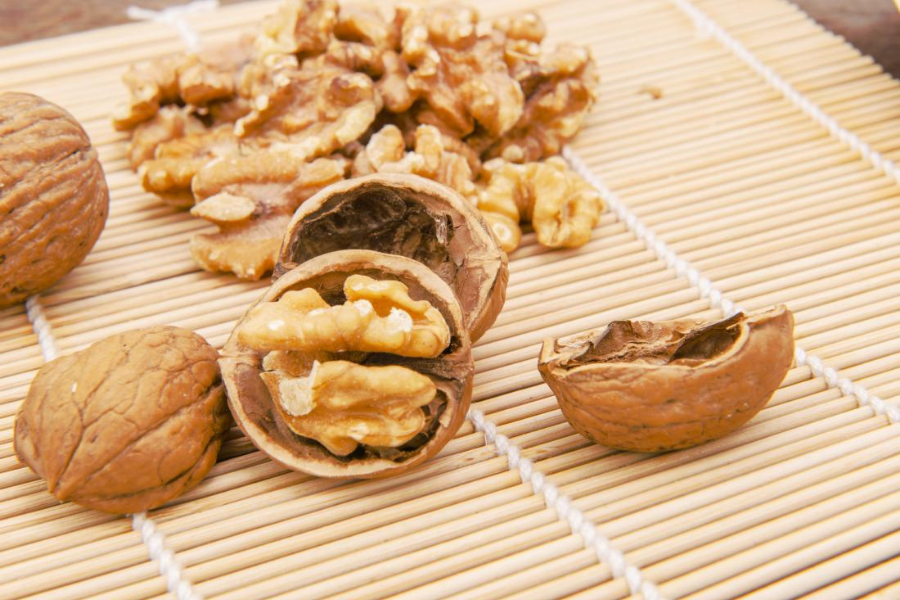
Walnuts, one of the most potent superfoods, can significantly improve one’s health. They stand out among nuts for their exceptional health benefits and unusual nutrient makeup. rich in fibre, protein, healthy essential fats, vitamins, trace minerals, and antioxidants. Walnuts contain both omega-3 and omega-6 necessary fatty acids. These improve memory and cognitive function. Walnuts contain large amounts of biotin, often known as vitamin B7, which is thought to reduce hair loss and help hair and nails grow longer and stronger. Walnuts have the highest antioxidant content of all tree nuts. Due to their increased antioxidant content, walnuts have been shown to prevent the spread of breast cancer.
7. Almonds
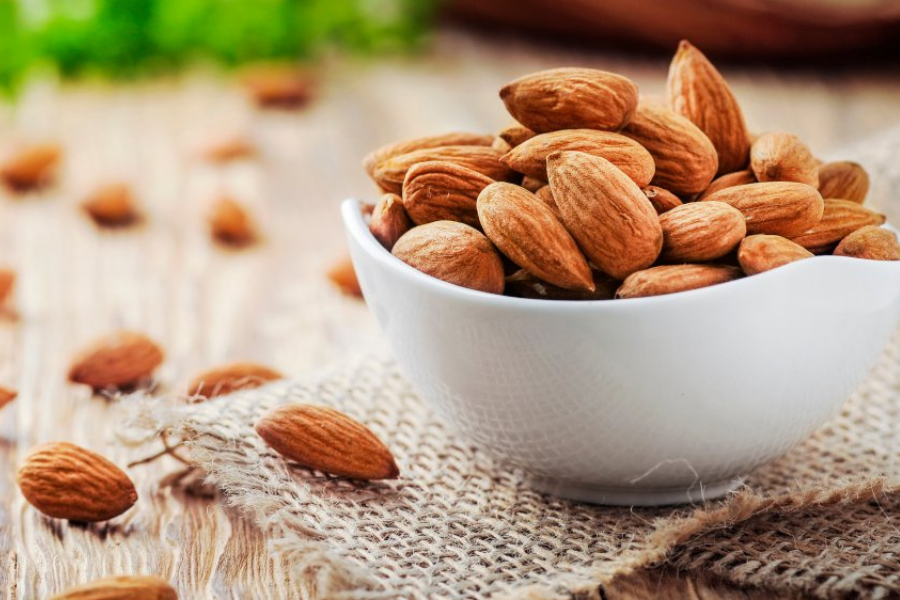
Almonds have a wide range of nutrients, including vitamins, minerals, fibre, and protein, therefore they can be beneficial to your health. They are extremely nutrient-dense and include a lot of healthy fats, antioxidants, vitamins, and minerals. Consuming almonds has been demonstrated to increase red blood cell vitamin E levels and reduce cholesterol risk. Consuming almonds may help regulate blood sugar levels. This is as a result of the magnesium that almonds contain, and it is advised that you consume a handful of almonds each day. Your ability to think more clearly will improve even with just five almonds in the morning.
8. Salmon
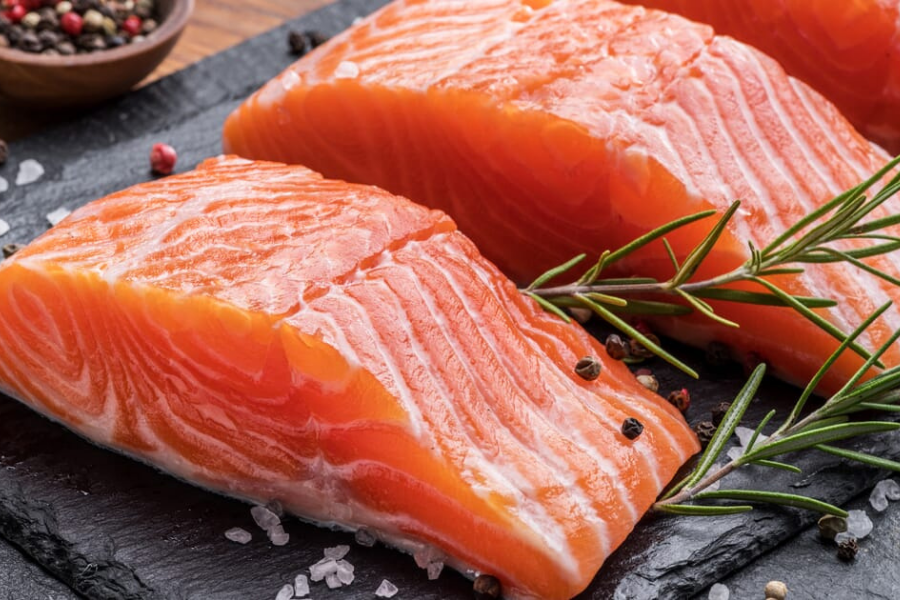
Salmon is one of the healthiest fish species and offers a lot of benefits. Salmon is great for your hair and skin because it contains essential nutrients including vitamin B12 and omega-3 fatty acids. Salmon is an excellent protein option that can reduce the risk of cardiovascular illnesses, guard against inflammation, and support cognitive function. Salmon is well-known for its omega-3 fatty acids. Antioxidants and carotenoids, which both promote the eye’s optimum health, are abundant in salmon. A balanced diet with sufficient calcium and vitamin D from foods like salmon is one of the cornerstones for maintaining strong bones as we age.
9. Dark chocolate

Dark chocolate is not just a guilty pleasure because it has several health benefits. Genuine black chocolate has incredible health benefits compared to manufactured and sweetened milk chocolate. Dark chocolate contains a lot of minerals, including iron, magnesium, and zinc. Dark chocolate contains flavoroids, which are antioxidants found in cocoa and may provide a number of health benefits. Dark chocolate raises good cholesterol while lowering bad cholesterol. The high magnesium concentration of dark chocolate helps to lower blood pressure. The flavanols in dark chocolate not only improve blood flow to the brain but also to the retina.
10. Blueberries
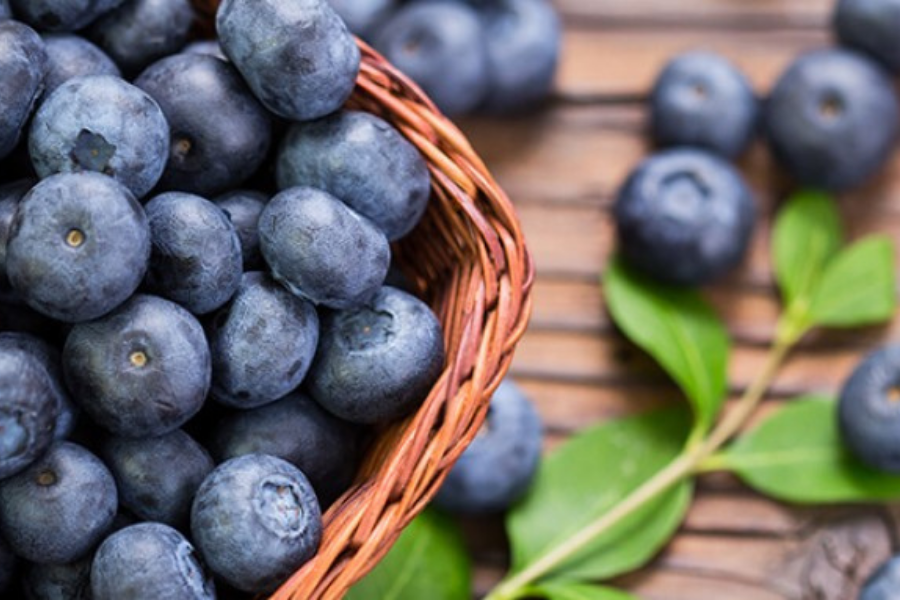
It makes sense why blueberries are considered a superfood. Blueberries have the highest antioxidant content of any fresh fruit. The anti-inflammatory properties of blueberry flavonoids significantly reduce the risk of contracting a cold. The amount of antioxidants in blueberries makes it possible for them to reduce cholesterol levels. Furthermore, blueberries help to lessen the potential for oxidative stress in our nerve cells, improving their performance. Blueberries are also advantageous for those with diabetes. Blueberries are a rich source of vitamins, minerals, and vitamin C in particular. Blueberries are an excellent source of nutritional fibre and have a beautiful aroma. They also aid with digestion.
11. Lentils
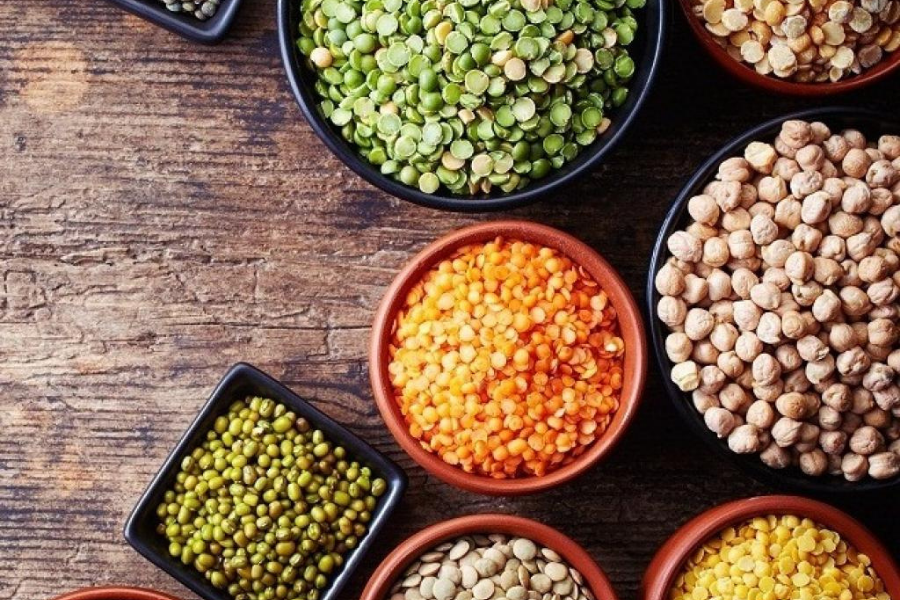
One of the foods with the highest fibre content is lentils. Fiber is not only beneficial for decreasing cholesterol, but it also works wonders for maintaining regularity in the digestive tract and stabilising blood sugar levels. They also aid in lowering blood cholesterol due to the large levels of soluble fibre they contain. They are also a fantastic source of magnesium and folate, both of which are essential for heart health. Due to its fibre and complex carbohydrates, they increase consistent, slow-burning energy. Additionally, lentils are a good source of iron, which is necessary for the body’s creation of energy and metabolism and for carrying oxygen across the body.
12. Avocados
Vitamins C, E, K, and B6 are all present in avocados, along with riboflavin, niacin, folate, pantothenic acid, magnesium, and potassium. They additionally offer beta carotene, lutein, and omega-3 fatty acids. High quantities of healthy, advantageous fats found in avocados can increase satiety between meals
13. Eggs
“Both the whites and the yolks of eggs are significant sources of protein. They are a terrific source of essential nutrients including vitamin B6, B12, and vitamin D, as well as heart-healthy unsaturated fats, according to Kurt Hong, MD, an internal medicine specialist at Keck Medicine of USC.
14. Coconuts
Manganese, which is vital for the health of bones and the metabolism of carbohydrates, proteins, and cholesterol, is particularly abundant in coconuts. Additionally, they are abundant in selenium, a vital antioxidant that safeguards your cells, copper, iron, and other minerals that aid in the formation of red blood cells.
15. Oats
One of the world’s healthiest grains is oats. They include significant amounts of essential vitamins, minerals, fibre, and antioxidants and are a gluten-free whole grain. Oats and oatmeal have numerous health advantages, according to studies. These consist of decreased blood sugar levels, weight loss, and a lower risk of heart disease.
16. Quinoa
Quinoa, which is pronounced KEEN-wah, has been grown by indigenous peoples in the Andes Mountains of South America for for 5,000 years, however it has only lately gained popularity in the United States. Flattened quinoa grains called quinoa flakes cook more quickly while maintaining all of quinoa’s nutritional value. Quinoa, which has the highest protein content of any grain, is so nourishing that NASA has used it to feed astronauts on extended space trips.
17. Peanuts
In reality, peanuts do not belong to the nut family. Along with foods like green peas, soybeans, and lentils, they are categorised as legumes. Peanuts reduce cholesterol levels, which helps to prevent heart disease. Additionally, they can prevent the formation of tiny blood clots and lower your risk of suffering a heart attack or stroke.
18. Apple cider vinegar
A well-liked natural treatment is apple cider vinegar. For millennia, people have utilised it in both cooking and medicinal. Many people assert that it can treat a variety of health issues, but you might be curious about the findings of the research.
Apple cider vinegar offers a number of beneficial health impacts, such as antioxidant and antibacterial activities.
19. Sweet potatoes
Worldwide, sweet potatoes, a sweet, starchy root vegetable, are produced.
They are abundant in vitamins, minerals, antioxidants, and fibre and come in a variety of shapes and hues, including orange, white, and purple.
20. Yogurt
Eating it frequently may improve numerous areas of your health because it is particularly nutrient-dense. Yogurt, for instance, has been shown to help with weight management and reduce the risk of heart disease and osteoporosis.
21. Brown rice
Numerous elements included in brown rice support heart health. It has a lot of dietary fibre, which lowers the risk of heart disease death. Additionally, brown rice has a lot of magnesium, which helps lessen your risk of stroke and heart disease.
22. Cucumber
Cucumbers contain a lot of water, which can help you stay hydrated. Furthermore, the fibre boost they provide you with keeps you regular and prevents constipation. The vitamin K keeps your bones healthy and aids in blood clotting. Numerous functions of vitamin A include support for the immune system, eyesight, and reproductive health.
23. Carrots
Carrots’ fibre content can aid in regulating blood sugar levels. Additionally, they are abundant in beta-carotene and vitamin A, both of which have been linked to a decreased incidence of diabetes. They can make your bones stronger. Both calcium and vitamin K, which are found in carrots, are crucial for healthy bones.
24. Chicken breasts
Chicken breast is quite high in protein yet low in fat and calories. Many essential nutrients can be found in it. Again, if you’re not consuming a lot of carbohydrates, feel free to consume fattier cuts of chicken.
25. Lamb
Red meat that originates from young sheep is called lamb. In addition to being a fantastic source of several vitamins and minerals, such as iron, zinc, and vitamin B12, it is also a plentiful supply of high-quality protein. As a result, regular eating of lamb may enhance performance and encourage muscular growth. Additionally, it aids in preventing anaemia.
26. Broccoli
The large flower head, stalk, and tiny accompanying leaves of the broccoli plant, Brassica oleracea var. italica, which belongs to the Brassicaceae family and genus Brassica, are consumed as vegetables. The cultivar group Italica of the plant Brassica oleracea is where broccoli belongs. Large, typically dark-green flower heads on broccoli branch out from a thick, typically light-green stem in a tree-like arrangement. There are leaves all around the cluster of blossom heads. Cauliflower, a distinct but related cultivar group of the same Brassica species, mimics broccoli.
27. Almond milk
Almond milk is a plant-based beverage made from almonds that has a watery consistency and a nutty taste. However, some varieties or brands have flavours that mimic those of cow’s milk. It is minimal in saturated fat and free of lactose and cholesterol. Lactose intolerant people and people who don’t eat dairy goods, like vegans, frequently drink almond milk. Commercial almond milk is typically fortified with micronutrients and is available in sweetened, unsweetened, vanilla, and chocolate varieties. A mixer, almonds, and water can be used to make it at home as well.
28. Veggie juice
Vegetable juice is a juice beverage that is mainly made of pureed vegetables and is also sold as powders. Fruit juices like apples or grapes are frequently added to vegetable liquid to enhance flavour. Although some commercial brands of vegetable juices use fruit juices as sweeteners and may contain significant quantities of sodium, they are frequently promoted as a low-sugar alternative to fruit juice.
29. Pumpkin seeds
The edible seed of a pumpkin or some other varieties of squash is called a pumpkin seed, also known as a pepita in North America (from the Mexico Spanish: pepita de calabaza, “little seed of squash”). The seeds are usually flat and asymmetrically elliptical, covered in a white husk that can be peeled off to reveal a light green interior. Some pumpkin cultivars are cultivated solely for their edible seed and lack the husk. The seeds are nutrient- and calorie-rich, with a high concentration of protein, dietary fibre, and numerous micronutrients. They also contain a lot of fat, notably linoleic and oleic acids. The term “pumpkin seed” can apply to the finished, roasted product that is eaten as a snack and can also refer to the whole, unhulled seed.
30. Canned tuna
There are many types of tuna. Overall, it is a great protein source that is minimal in fat and calories.
The nutritional value of tinned tuna can vary depending on whether it is packed in water or oil. When compared to tinned tuna packed in water, canned tuna packed in oil typically has more calories and fat.
31. Flaxseeds
With so many vital elements, flaxseeds are a nutritional powerhouse. They are a great source of omega-3 fatty acids, which are crucial for maintaining heart health, lowering inflammation in the body, and maintaining brain and heart function. Additionally, flaxseeds are high in fibre, which helps to regulate digestion and lower cholesterol. They include lignans, which are plant substances with antioxidant and hormone-balancing characteristics.
32. Olive oil
The Mediterranean diet includes plenty of olive oil, which is well-known for its health advantages. It has a lot of monounsaturated fats, especially oleic acid, which has been linked to a lower risk of developing heart disease. Polyphenols and antioxidants included in olive oil aid to reduce inflammation and shield cells from oxidative damage. Additionally, it has been connected to enhanced brain health and a decreased risk of chronic illnesses, including several malignancies.
33. Brussels sprouts
Brussels sprouts are a powerhouse of fibre, vitamins, and minerals. They contain high levels of vitamin K, which is essential for healthy blood coagulation and bones. Additionally, these cruciferous vegetables include substances known as glucosinolates, which have been linked to a lower risk of a certain malignancies. Due to their high fibre content, Brussels sprouts assist in digestion, promote general health, and strengthen the heart.
34. Cabbage
A nutrient-rich vegetable with many health advantages is cabbage. It is a great source of fibre, which supports digestive health, as well as the vitamins C and K. Several antioxidants, including anthocyanins, which have been associated with anti-cancer characteristics, may be found in cabbage. Its high sulphur content may also aid the body’s detoxifying procedures.
35. Beets
The betalains that give beets their vivid colour are among the beets’ many antioxidants. These anti-oxidants might have an anti-inflammatory impact and assist in defending cells from injury brought on by dangerous free radicals. By assisting in blood pressure reduction and blood flow improvement, beets are also recognised to benefit heart health. Additionally, the nitrates in beets may improve stamina and workout performance.
36. Pomegranates
Antioxidants are abundant in pomegranates, especially punicalagins, which have strong anti-inflammatory properties. Pomegranate consumption may lower blood pressure, strengthen the heart, and offer some cancer protection. Pomegranate also improves with digestion, maintains good skin, and boosts memory and brain function.
37. Pineapple
A tropical fruit called pineapple includes an enzyme called bromelain that helps with digestion and may also lessen inflammation. Manganese, antioxidants, and vitamin C are also abundant in it. In addition to fostering good digestion and supporting the immune system, pineapple may also be anti-inflammatory.
38. Mushrooms
Mushrooms are high in nutrients and low in calories. Along with potassium and selenium, they supply B vitamins. Additionally, mushrooms contain bioactive substances that may strengthen the immune system, promote heart health, and maybe even have anticancer properties. Mushroom varieties come in a variety of health varieties.
39. Asparagus
In addition to being rich in fibre, vitamins A, C, and K, asparagus is a vegetable that is packed with nutrients. It is a natural diuretic as well as supporting a healthy digestive system and weight management. Having a high antioxidant content, asparagus may provide anti-aging benefits.
40. Hemp seeds
All of the necessary amino acids are present in hemp seeds, making them a complete source of protein. Omega-3 fatty acids, which have anti-inflammatory properties and enhance brain function, are abundant in them. Additionally offering fibre, vitamins, and minerals, hemp seeds are a nutrient-dense supplement to meals and snacks.
41. Watermelon
Fruits high in vitamins A and C, like watermelon, are hydrating. Additionally, it contains a lot of lycopene, an antioxidant with strong links to a lower risk of developing several malignancies. In addition to promoting hydration and good skin, watermelon may also help the heart.
42. Black beans
Protein, fibre, and a variety of vitamins and minerals are all found in abundance in black beans. They may aid in lowering cholesterol and stabilising blood sugar levels and are a rich source of plant-based iron. Due to their high fibre content, black beans are also good for your digestive system.
43. Cauliflower
The multipurpose vegetable cauliflower is high in fibre, vitamins C and K, and other nutrients. Additionally, it contains plenty of antioxidants including glucosinolates, which may have anti-cancer effects. For those managing their carbohydrate consumption, cauliflower is an excellent low-carb alternative to rice or mashed potatoes.
44. Quorn
Quorn is a fungus-based meat alternative. It has a high protein content, is low in fat, and is a rich source of fibre. Additionally enriched with vitamins and minerals including iron and vitamin B12, Quorn products are a nutrient-dense choice for vegetarians and vegans.
45. Lean chicken breast
Lean chicken breast is a fantastic source of high-quality protein, which is necessary for muscle development, maintenance, and repair. Additionally, it is an excellent source of B vitamins, such as niacin and vitamin B6, which are crucial for both brain and energy metabolism. Chicken breast is a healthy supplement to a balanced diet since it is low in fat, especially saturated fat.
46. Sardines
Sardines are a little, fatty fish that are rich in nutrition. They are a great source of omega-3 fatty acids, which are great for your heart, your brain, and your body’s ability to fight inflammation. Additionally, sardines include calcium, vitamin D, and selenium, all of which support healthy bones and the immune system.
47. Barley
Whole grain barley has a lot of dietary fibre, especially a kind known as beta-glucan. This fibre supports heart health, proper digestion, and blood sugar regulation. A good source of vitamins and minerals including selenium and magnesium is barley.
48. Mangoes
Mangoes: Mangoes are not only tasty, but they are also nourishing. They are abundant in dietary fibre, vitamins A and C, and both. Antioxidants found in mangoes assist prevent cell deterioration and promote immunological function. They are also an excellent source of folate, which is crucial for the creation and growth of cells.
49. Soyabeans
Young soybeans called edamame are a plant-based source of complete protein. They include a lot of fibre, vitamins, and minerals like iron, folate, and vitamin K. Isoflavones, which are phytoestrogens found in abundance in edamame and may help lower the risk of several malignancies and enhance bone health.
50. Sunflower seeds
Sunflower seeds are a high-nutrient snack that offers fibre, protein, and healthy fats. They contain a lot of vitamin E, an antioxidant that guards against oxidative damage to cells. Minerals including magnesium, selenium, and zinc, which assist a number of body activities, are also included in sunflower seeds.
51. Peanut Butter
Made from ground peanuts, peanut butter is a healthy spread. It is a rich source of fibre, protein, and beneficial fats. Nutrients including magnesium, potassium, and vitamin E are all present in peanut butter. It can support heart health, aid with weight control, and give long-lasting energy.
52. Blackberries
Blackberries have a dark colour because to anthocyanins, which are abundant in antioxidants. These antioxidants have been linked to anti-inflammatory and anti-aging properties. Additionally rich in fibre and vitamin C, blackberries help maintain immune system and digestive health.
53. Dandelion greens
Dandelion greens: Dandelion greens are a type of leafy green that are very healthy and have a number of advantages. They are a good source of calcium, iron, and the vitamins A, C, and K. The diuretic qualities of dandelion greens may support liver health, healthy digestion, and cleansing. They also include anti-inflammatory antioxidants that help immune system health.
54. Wholegrain Bread
Whole-grain bread is manufactured from whole grains like whole wheat, oats, or rye and has more fibre and minerals than refined grains. It provides minerals, B vitamins, and complex carbs. The heart, blood sugar, and digestive systems may all benefit from choosing whole grain bread versus refined types.
55. Celery
Celery is high in dietary fibre, vitamins, and minerals while being low in calories. It has anti-inflammatory and digestive-supporting antioxidants. Celery may also act as a diuretic and support cardiovascular health.
56. Persimmons
Persimmons are a good source of dietary fibre, vitamins C and K, and antioxidants. They can improve heart health, assist with digestion, and encourage regular bowel motions. Flavonoids, which have anti-inflammatory qualities and may lower the chance of developing several chronic illnesses, are also found in pears
57. Coconut oil
Medium-chain fatty acids, found in abundance in coconut oil, can serve as a rapid source of energy and aid with weight control. It also contains antibacterial qualities that could aid in the defence against specific diseases. It’s crucial to remember that coconut oil contains a lot of saturated fats and should only be used sparingly.
58. Figs
Figs are a wonderful source of vitamins, minerals, and dietary fibre. They can help with digestion, encourage regular bowel motions, and increase satiety. Additionally rich in antioxidants, figs may potentially have anti-inflammatory properties.
59. Oysters
Especially high in zinc, iron, and vitamin B12, oysters are a nutrient-dense diet. They have little calories and can help with energy generation, immune system health, and brain health. Omega-3 fatty acids, which have anti-inflammatory qualities, are another ingredient in oysters.
60. Seaweed
Iodine, a mineral necessary for thyroid function, is found in seaweed, a rich source of this nutrient. Antioxidants, vitamins, and minerals like calcium and iron are also present. In addition to supporting digestive health and maybe providing specific bioactive substances with health benefits, seaweed may have anti-inflammatory qualities.
61. Quail eggs
Quail eggs are tiny yet packed with nutrients. They are an excellent source of selenium, vitamins A and B12, and protein. Quail eggs can improve immunity, enhance brain health, and supply vital nutrients for cell growth and repair.
62. Collard greens
Collard greens are a leafy green vegetable rich in calcium, dietary fibre, and vitamins A, C, and K. Being low in calories and rich in antioxidants, they can benefit general health, particularly heart health, by reducing inflammation
63. Grapefruit
Grapefruit is high in dietary fibre, antioxidants, and vitamins A and C. It has little calories and might help you control your weight. Due to its high water content, grapefruit may also enhance immune system health, decrease cholesterol levels, and promote hydration.
64. kidney beans
Various vitamins and minerals, dietary fibre, and plant-based protein may all be found in kidney beans, which are also a great source of fibre. They can help maintain normal digestion, lower blood sugar, and support heart health. Antioxidants and potential anti-inflammatory properties are both provided by kidney beans.
65. Gluten-free grain
A gluten-free grain substitute that is high in protein, dietary fibre, and minerals including manganese and magnesium. It has antioxidants and might enhance blood sugar regulation, improve heart health, and boost digestion and blood sugar health.
66. Bison
Bison is a lean protein source that contains iron, vitamins B12 and vital amino acids. In comparison to beef, it has fewer calories and fat, and it can have a better fatty acid profile. Energy, a balanced diet, and the support of muscular growth and repair are all benefits of bison.
67. Goji berries
Antioxidants, vitamins, and minerals are abundant in goji berries. They may promote eye health, strengthen the immune system, and guard against oxidative stress due to their high vitamin C content. Additionally, goji berries contain special phytochemicals that have been linked to a number of health advantages.
68. Artichokes
Artichokes are full of antioxidants, vitamins C and K, and nutritional fibre. In addition to supporting weight control, they can encourage good bowel motions and assist digestive health. Additionally, artichokes have substances that protect the liver.
69. Whole grains Pasta
Pasta made from whole grains is a wonderful source of vitamins, minerals, and dietary fibre. It offers enduring energy, aids in digestion, and can add to a diet that is balanced. Certain chronic illnesses are linked to a lower risk when whole grains are consumed
70. Tempeh
A fermented soy food that is high in protein, dietary fibre, and other nutrients is called tempeh. It offers vital amino acids, aids in muscle development and repair, and adds to a diet that is balanced. Probiotics included in tempeh can help your intestinal health.
71. Peaches
Peaches are low in calories and high in dietary fibre, antioxidants, and the vitamins A and C. They can help with immunological support, skin health promotion, and digestive assistance. Peaches’ high water content makes them an excellent source of hydration.
72. Arugula
Arugula is a leafy green vegetable that is rich in folate, antioxidants, vitamins A, C, and K. It has anti-inflammatory ingredients that could help maintain bone health. Additionally, rocket offers nutritional nitrates, which can enhance athletic performance.
73. Pecans
Pecans are a nutrient-rich nut that is high in fibre, healthy fats, and a number of vitamins and minerals. They offer antioxidants and might be anti-inflammatory. When eaten in moderation, pecans can help with weight loss, heart health, and cognitive function
74. Cranberries
Vitamins C and E, dietary fibre, and special substances known as proanthocyanidins are all present in cranberries, which are also rich in antioxidants. They can promote the health of the urinary tract, a strong immune system, and have anti-inflammatory properties.
75. Prunes
Prunes, or dried plums, are rich in nutrients such dietary fibre and vitamins. They can assist healthy digestion, encourage regular bowel motions, and offer antioxidants. Prunes may benefit bone health, control blood sugar, and improve bone density.
76. Radishes
Rich in dietary fibre, vitamins C and K, and antioxidants, radishes are low in calories and abundant in nutrients. Because they contain a lot of water, they can help with digestion, encourage regular bowel movements, and give you hydration. Additionally, radishes have elements that could be anti-cancer.
77. Green peas
Green peas are a good source of dietary fibre, plant-based protein, vitamins, and minerals. In addition to providing antioxidants, they can aid in digestion and maintain a healthy cardiovascular system. Zeaxanthin and lutein, which are good for eye health, are also found in green peas.
78. Camu camu
A fruit that is indigenous to the Amazon jungle and is incredibly rich in vitamin C. It offers antioxidants as well and may be anti-inflammatory. Camu camu can enhance the immune system, encourage collagen formation, and improve general health.
79. Butternut squash
Butternut squash is a good source of antioxidants, dietary fibre, and vitamins A and C. It can help with digestive health, skin health, and immune system support. Additionally a rich source of potassium, which is crucial for heart health, is butternut squash.
80. Cacao nibs
Cacao nibs are tiny bits of crushed cacao beans that are high in nutrients including magnesium and iron as well as antioxidants and dietary fibre. They offer a natural source of energy, promote heart health, and even lift your mood. Theobromine, which has a stimulating effect, is also present in cacao nibs.
81. Kefir
Fermented milk beverage high in probiotics, protein, and a number of vitamins and minerals is known as kefir. It can promote digestive health, a strong immune system, and intestinal health. Additionally, kefir contains calcium and vitamin K, both of which are crucial for healthy bones.
82. Swiss chard
The leafy green vegetable chard, commonly referred to as Swiss chard, is rich in the vitamins A, C, and K as well as minerals like magnesium and potassium. Antioxidants included in it improve general health by lowering inflammation. Additionally, chard offers nutritional fibre, which helps maintain a healthy digestive tract.
83. Kimchi
Made from fermented vegetables like cabbage and radishes, kimchi is a typical side dish in Korea. It contains a lot of minerals, vitamins, and probiotics. Kimchi can improve digestion, boost the immune system, and promote gut health. It also has anti-inflammatory effects and antioxidants.
84. Turmeric
Curcumin, a substance found in turmeric, a yellow spice frequently used in Indian cooking, has potent anti-inflammatory and antioxidant effects. It could lower the risk of chronic illnesses, promote brain function, and lessen arthritic symptoms. Black pepper is frequently taken with turmeric to improve absorption.
The most obvious approach is to take dietary supplements if you want a lot of nutrients without a lot of calories. A balanced diet, however, is difficult to replace with supplements. Filling up on nutrient-dense foods at each meal is a better method to ensure that you obtain all the nutrients you require.
Rich in nutrients compared to their calorie content are foods that are considered to be nutrient-dense. These consist of a variety of nutritious meals such whole fruits, vegetables, chocolate, shellfish, eggs, and liver. To benefit from the aforementioned foods, start including them in your diet right away.
Read also – 14 Local Foods You Must Try Out in Assam
